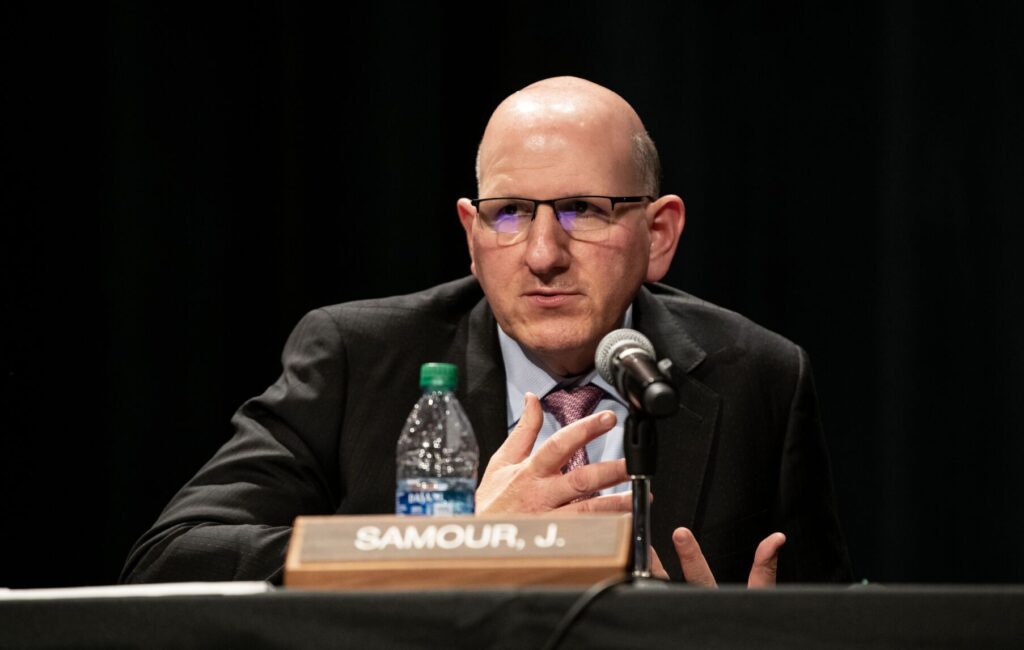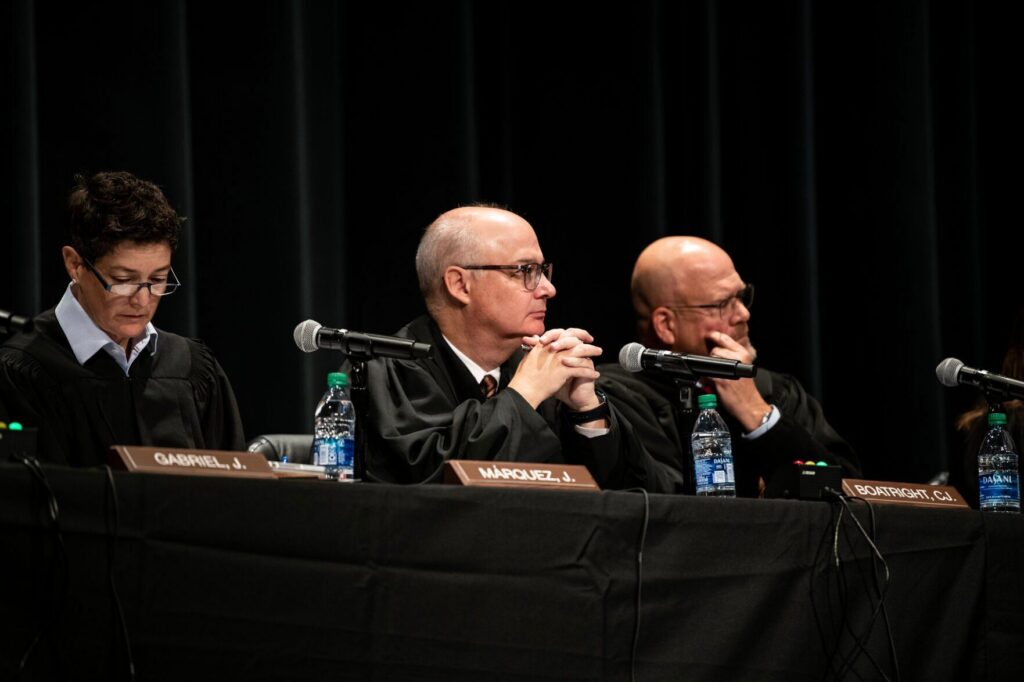Colorado judicial discipline rules released for public comment
The panel charged with enacting protocols governing the judicial discipline process has released a set of new rules for public comment.
Last November, voters approved constitutional Amendment H to reform how Colorado disciplines its judges. The changes reduced the role of the state Supreme Court, enabled information-sharing about judges’ alleged misconduct to occur sooner and more widely, and established the 13-member rule-making committee.
On July 29, the committee posted three sets of interim rules, which took effect in early-to-mid-June. Its chair, Kristen L. Mix, did not immediately respond to a question about the gap between the rules’ enactment and their public posting. The committee, in a notice announcing the rules, said the public will also have the chance to provide feedback when the body proposes a set of final rules.
The committee has not scheduled the hearing, but indicated that a hearing is likely to occur in early September. There will be an option to participate remotely, and the public can also submit statements over email.
Mix previously told Colorado Politics that members of the committee generally believed Amendment H triggered the need for new discipline rules. However, nothing forbade the committee from recycling certain procedures that existed before the constitutional change.
“Everybody understands the urgency. Everybody understands that this is an important mission and that we want to meet the legislative mandate as quickly as we can. On the other hand, everybody understands that this kind of business takes time,” she said in March.
Of the three sets of rules, one is entirely new. It governs the conduct for members of the Independent Judicial Discipline Adjudicative Board — a pool of district judges, attorneys and non-attorneys who hear cases in three-member panels. The board imposes sanctions and its decisions are appealable to the Supreme Court.
Last month, former District Court Judge Justin B. Haenlein became the first judge publicly censured by a panel of the new adjudicative board, in a case where nearly half of the rule-making committee members participated. The five overlapping members were Weld County District Court Judge Vincente G. Vigil and Jeff Swanty, who sat on the panel; Anne Mangiardi and Jeff Walsh of the Colorado Commission on Judicial Discipline; and David Beller, who represented Haenlein.
The interim rule governing the adjudicative board indicates which records are public and which remain confidential. It clarifies that adjudicative board members must not communicate with media or the public about their proceedings. Further, the rule adopts recusal guidelines that parallel the requirements for judges.
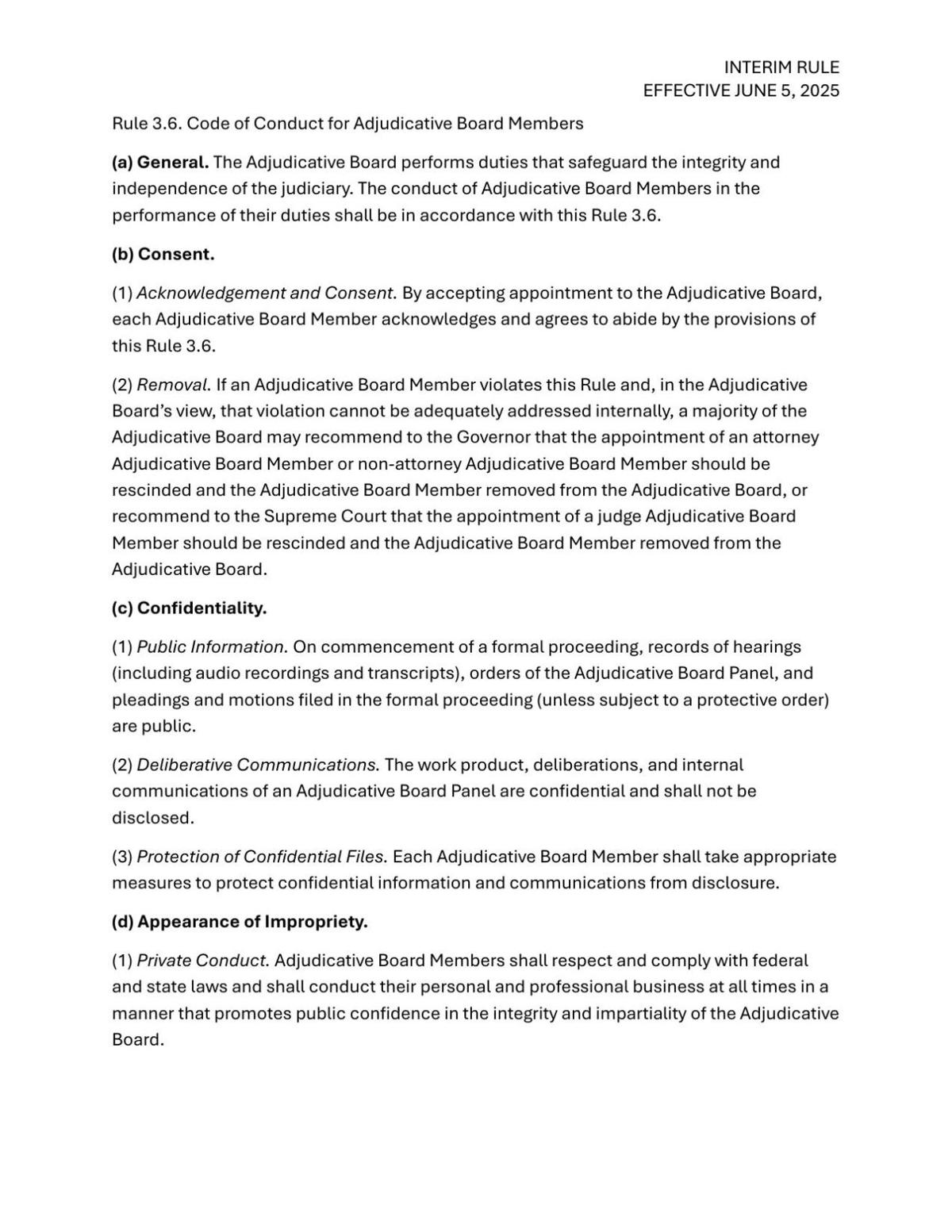
The second rule, adapted from the prior judicial discipline procedures, governs temporary suspensions of judges who are under investigation. The new version adds a provision describing suspension as appropriate “when there is a substantial threat of serious harm to the public, to the administration of justice, or to the integrity of the judiciary if a Judge continues to perform judicial duties pending the outcome of informal or formal proceedings.”
The Supreme Court remains the entity responsible for suspending judges at the request of the discipline commission or on its own. It may also request that a panel of the adjudicative board consider whether a temporary suspension is warranted.
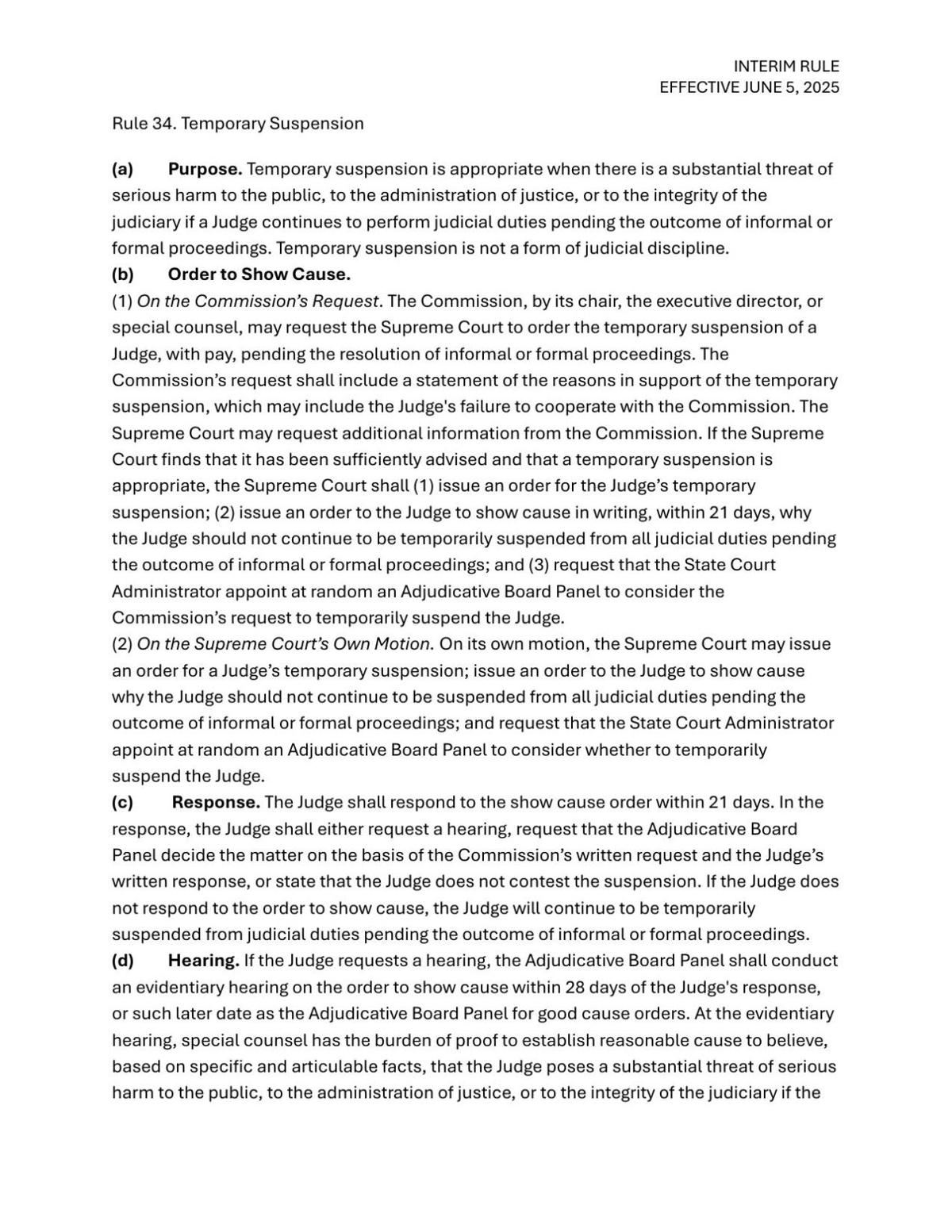
If the adjudicative board does hold a hearing, counsel for the discipline commission has the burden of showing why the judge under investigation poses a threat to the public or to the integrity of the judicial system if they remain on the bench. The Supreme Court will make the ultimate decision about the temporary suspension.
The final rule governs “stipulated resolutions” to formal disciplinary proceedings, which occur when the discipline commission and the judge under investigation agree what the outcome should be. The stipulation must cite to the relevant ethics and procedural rules, request a specific punishment and discuss any agreement about who pays the costs of the proceeding.
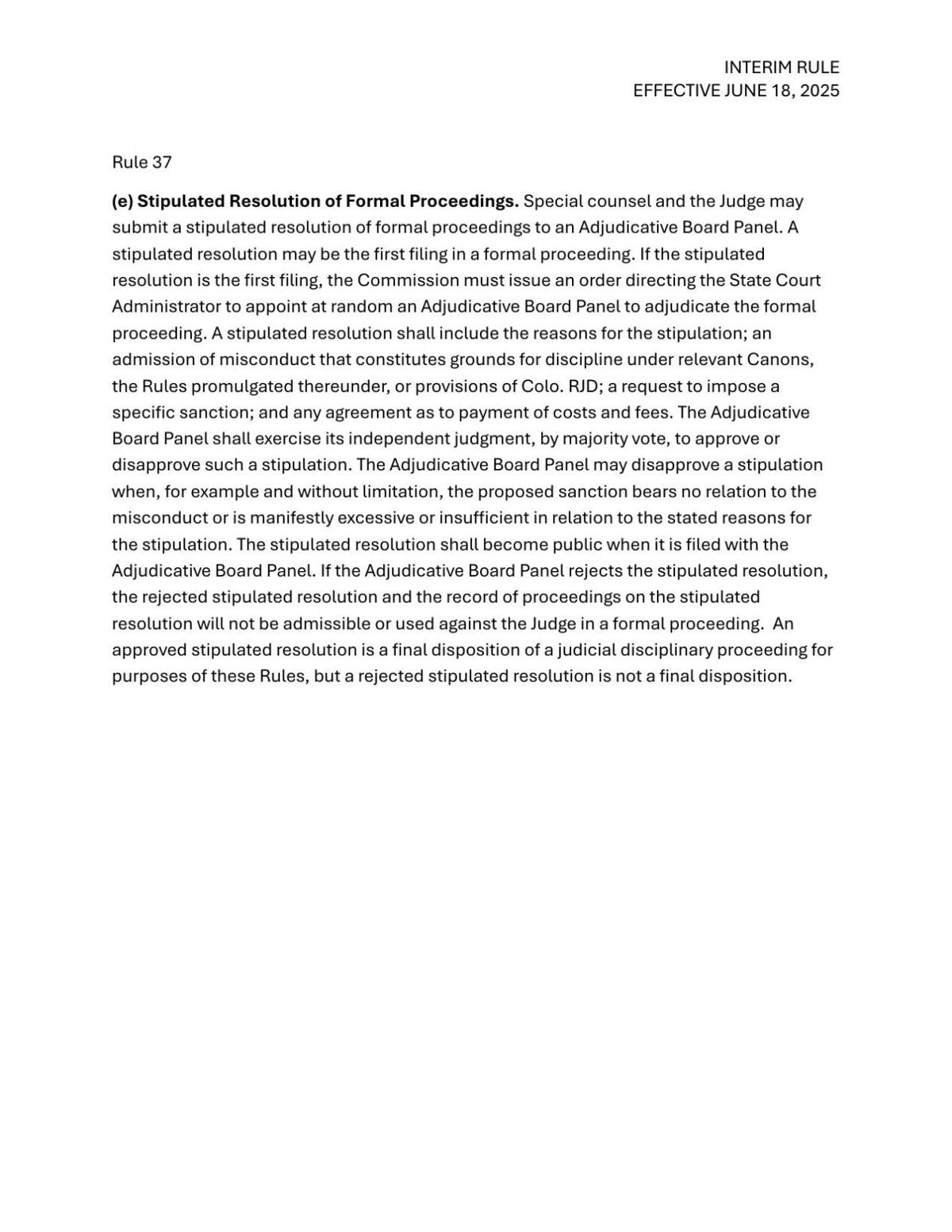
Critically, the rule empowers adjudicative board panels to reject any agreed-upon resolution if the sanction “bears no relation to the misconduct or is manifestly excessive or insufficient.”
The adjudicative board’s authority to deviate from a stipulated punishment became an issue in the discipline of Haenlein. Although the public censure was the harshest punishment that could be imposed upon a judge who has resigned, as had Haenlein, the disciplinary panel defended its ability to impose any punishment it deemed appropriate.
“The Panel notes that while it accepts the parties’ stipulation in this instance, such acceptance does not constitute a limitation on the Panel’s constitutional authority to impose any sanction within its jurisdiction, including but not limited to removal, retirement, suspension, censure, reprimand, or other discipline as provided by the Colorado Constitution,” wrote the members.






